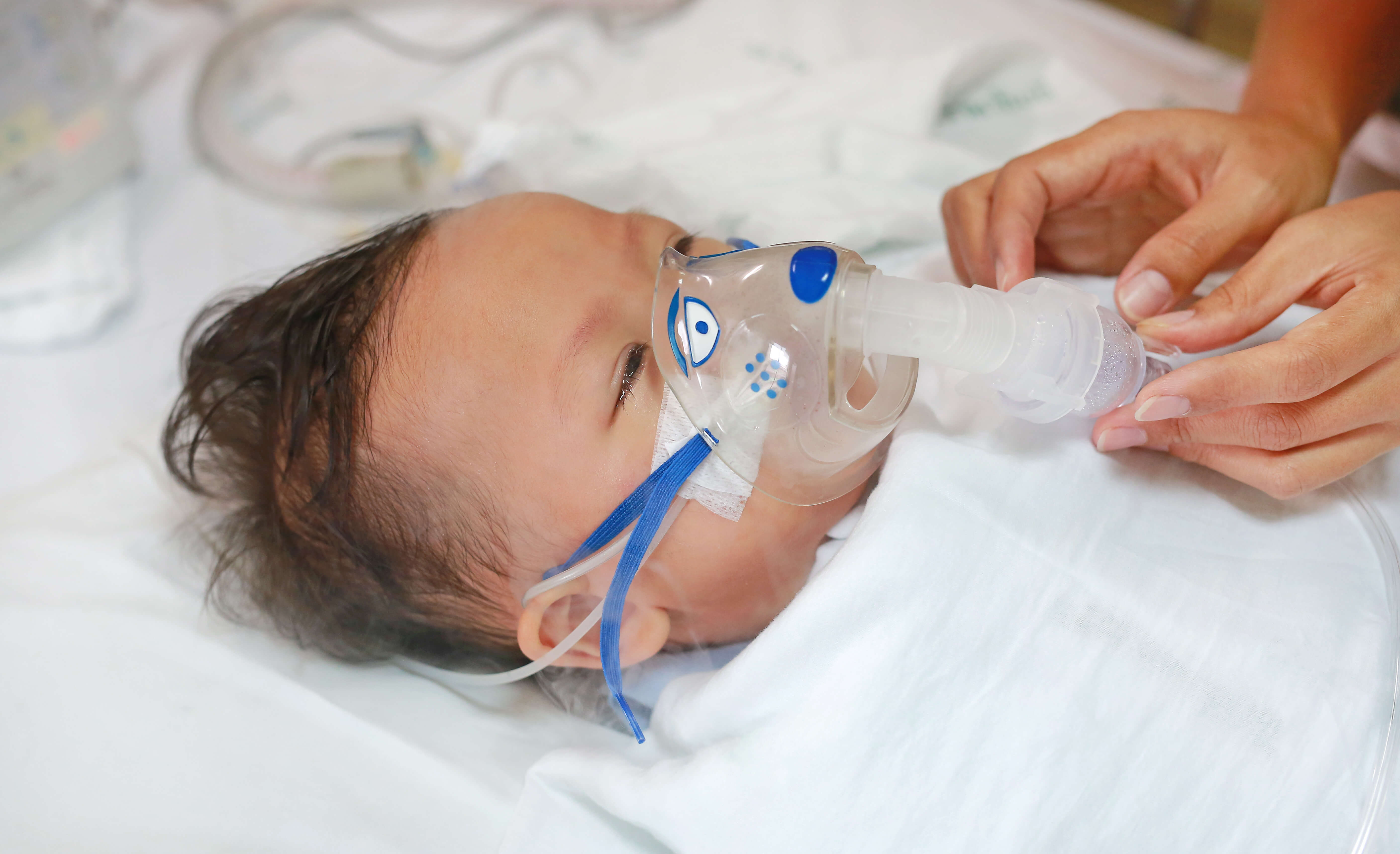The Impacts of RSV in Our Region
Advice on Handling the Risks
An RSV (respiratory syncytial virus) diagnosis can be unnerving for some individuals and families. While most people recover over time, RSV can be severe.
According to the CDC, 58,000 - 80,000 children younger than five years old are hospitalized every year with the virus. RSV can cause illness in all ages but mainly impacts younger children and older adults. Premature babies and young infants are more prone to developing severe RSV.
Most children will get the virus before the age of 2. Individuals with a lower immune system or heart or lung disease will have a greater risk of developing symptoms with RSV.
For those who are most at risk, ETSU Health offers resources ranging from testing to care and is always there to provide for
those in the area.

Understanding How RSV Impacts Individuals
RSV causes infections of the lungs and respiratory tract. The virus acts like a cold but can involve the lungs and cause difficulty breathing, especially in babies.
RSV comes around in the United States from fall to spring. This trend is similar to what is happening in the surrounding East Tennessee area, with higher numbers of infections occurring during this time.
From the time of exposure, it can take three to eight days for someone to become ill. RSV can spread from person to person and infect the nose, throat, and lungs.
With more people staying inside due to the cooler weather, close contact with others is more challenging to avoid. The virus can cause trouble breathing, leading to bronchiolitis or pneumonia, which are the leading causes of infant hospitalization.
Symptoms of RSV
Symptoms of RSV infection typically include:
- Runny Nose
- Wheezing
- Coughing
- Sneezing
- Fever
- Loss of Appetite
Management of RSV Symptoms
The severity of symptoms associated with RSV can vary between cases. According to the Mayo Clinic, for mild cases of RSV, steps can be taken at home to relieve some of the symptoms related to the virus.
- Staying hydrated is extremely important.
- Warm soup and cool popsicles can provide relief as well as hydration for older children.
- Avoid dry air when possible.
- Humidifiers help keep humidity up and decrease symptoms such as coughing and excess mucus.
- Infants can benefit from saline spray and gentle suction to reduce congestion.
- Medications such as ibuprofen and acetaminophen can aid in reducing fever.
- Consult your physician for appropriate dosing before taking any medicine.
In more severe cases of RSV, the patient may need to seek medical care. Trouble breathing and dehydration are reasons to contact your health care provider or visit a local hospital. Click here for more information regarding when to seek medical intervention.
Minimizing the Risk of Contracting RSV
While there is no way to altogether avoid the chance of contracting RSV, there are things you can do to lower the odds. RSV vaccines are available to young children, pregnant women, and people over 60.
Minimize RSV spread by keeping your child home when they are feeling unwell. Avoiding large crowds and densely crowded areas can also limit exposure to the virus, especially in peak RSV season.
Practicing healthy eating habits at home and getting enough sleep to keep your child's immune system high can help them from getting sick.
Also, wiping down surfaces and toys once a day can help kill germs.
Prevention is a good practice when trying to avoid the impacts of RSV.
I love prevention; that is the heart of every pediatrician. So, the immunizations
I highly recommend are the flu vaccine, the new RSV vaccine that is out, and the COVID-19
vaccine; those are all options to prevent illness before it starts. Also, good hand
hygiene, taking care of our bodies, staying well rested, and good nutrition help prevent
us from getting sick.
